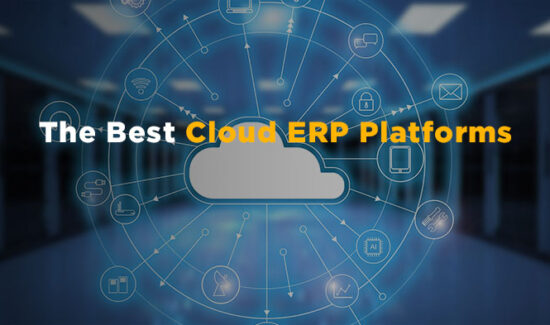How ERP Software Can Tighten Your Supply Chain


Supply Chain Management (SCM) is defined as the management of the flow of goods and services, involving the movement and storage of raw materials, of work-in-process inventory, and of finished goods from point of origin to point of consumption. For manufacturers, managing the supply chain is extremely important and can even be a ‘make it or break it’ type of situation.
Widget not in any sidebars
Implementing an Enterprise Resource Planning (ERP) system can help companies achieve organizational growth and profitability. ERP’s can also enhance customer service and have many positive effects on a supply chain.
Simple Inventory Management
To begin, ERP systems that have a SCM integration benefit from having a comprehensive inventory tracking system to help business control and manage their inventory / product stock. With integrated SCM/ERP, businesses can organize and categorize their inventory, better manage detailed warehouse data, and record various product movements. This provides supply chain managers with a greater understanding of what inventory is on hand, what has been shipped out, what hasn’t and where the inventory is at all times.
Visibility and Transparency
Having an ERP to provide a holistic, consolidated view of the entire supply chain allows companies to make better-informed decisions around ordering and purchasing. It also gives them the ease of talking to customers with greater confidence about their orders. Plus, managers and upper management executives have a greater oversight into every part of the supply chain with an integrated SCM/ERP solution so they can identify issues and find solutions much faster.
Real-Time Reporting
Reporting manually always runs the risk of less frequency because of the labor intensive and manual process required to gather data. This leads to poor decisions because they are made on on out of date and/or inaccurate information. When you move to an integrated SCM/ERP system however, you get access to relevant, real-time data about the company’s (and supply chains) performance. This allows decision-makers to keep better track of the movement of products/inventory, and the ability to use this streamlined data to improve operational efficiencies.
Materials Requirement Planning
Materials Requirement Planning (MRP) refers to the planning, scheduling, and inventory control system to manage manufacturing processes. An ERP system is seen to be an extension of this, and having a SCM module integrated into your ERP can only make the MRP feature stronger. An integrated SCM/ERP provides this comprehensive management system that allows for integration of transactions, material planning, and other functions into a single system.
Along with the benefits listed above, an integrated SCM/ERP can also increase the flexibility of your supply chain, easily link important information with other business applications, therefore increasing integration, and can reduce costs.
Looking for more information about ERP systems? Download our free buyers guide, where you can find the top ERP software vendors, little blurbs about their highest ranking ERP solutions and products, plus the top 10 questions and tips to ask your vendor before purchasing!
And don’t forget to follow us on Twitter, Facebook and LinkedIn for all the latest in the ERP space!

























